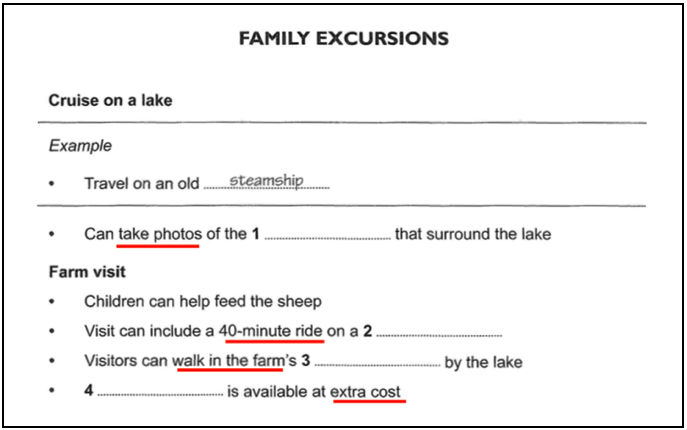IELTS Listening: is it possible to listen, read and write at the same time?
Today, IELTS Game will talk about the Listening section of IELTS and the skills you need to do well in this part of the test and how to improve listening skills.
The Listening part is the same in both Academic and General Training modules. It includes 4 different recordings and 40 questions.
The main trick about this part is that you can hear the recording only once.
It means that you have to catch all the information at once while you’re listening.
If you don’t want to miss any important information, you need to be able to listen, read and write at the same time during this part of the test.
So I want to give you some tips that will help you to do this.
Read before listening
There is always some time to read the questions before you hear the recording.
Make use of this time wisely! Read all the questions and try to find and mark the key words.
They will help you to focus on the information you need to hear in the recording, and you won’t need to reread the whole question while listening.
But don’t expect that you hear the same words that you marked.
In the recording, you can hear the synonyms of these words or words of a different part of speech.
Let’s look at the example:
So, I underlined take photos so that I listen to this information without reading the whole question again.
I marked 40-minute ride to listen for some kind of transportation.
Also, I underlined walk in the farm’s … to look for information about some place by the lake.
And the key word extra cost will help me to find the information about some activity on the farm.
How many words and numbers do you need to write?
In the types of questions where you have to finish sentences, fill in the gaps or write something, there is always a little prompt about how many words you have to write.
Don’t skip this part and always pay attention to it.
The examiners may ask you:
- Write NO MORE THAN TWO WORDS for each answer.
- Write ONE WORD AND/OR A NUMBER for each answer.
- Write ONE WORD ONLY for each answer.
Again, this information will help you to focus on listening to one, two or three words or numbers.
Where do I need to write?
You have an answer sheet for Listening and Reading parts of the exam.
But you don’t have to write on the answer sheet at once.
You will have extra 10 minutes at the end of the Listening part to transfer your answers to the answer sheet.
So when you listen, write all your answers on the question paper.
You are allowed to make any notes there during the exam, so make use of this opportunity.
When do I need to write?
Some people prefer to listen to the recording first, and then write their answers.
It’s not the best tactics! You won’t have enough time to answer all the questions after listening to the recording.
They usually give about 30 seconds after playing the recording so that you could check your answers.
So use this time for checking, not answering. It’s better to do all the tasks while you’re listening.
Pay attention to spelling
Spelling is always evaluated in the IELTS test.
So if you misspell the word, your answer will be considered wrong and you will lose points.
Revise the main spelling rules before the exam, and you will be able to avoid such silly mistakes.
Tips to Improve Listening Skills
To sum it up, I can say that it is possible to read, listen and write at the same time during the IELTS Listening test.
Just follow the simple rules:
Read the questions before listening;
Underline the key words;
Focus on the key words while listening;
Write your answers at once on the question paper;
Check your answers when the recording stops.
Don’t forget about practice. You must listen a lot before the exam to get used to different types of pronunciation and the flow of English speech.
Also, do as many practice exercises as you can to get familiar with different question types.
Good luck!



2 Comments on “IELTS Listening: How to listen, read and write at the same time?”
..
Just wanna work hard for high score